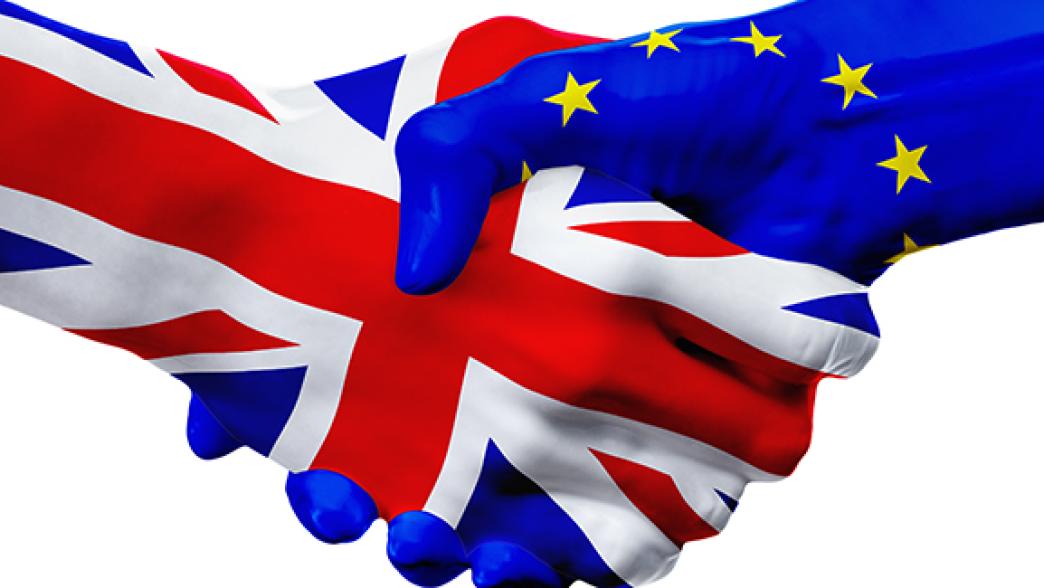EU bilateral agreements (or 'side deals')
After Brexit, will the UK need a bilateral agreement with the EU?

What does the term 'bilateral agreement' refer to?
A bilateral agreement (or what is sometimes refered to as a "side deal") is a broad term used simply to cover agreements between two parties. For international treaties, they can range from legal obligations to non-binding agreements of principle (often used as a precursor to the former).
Most of the EU’s main trading partners who do not have a full free trade deal have various bilateral agreements with the EU. The EU has hundreds of these agreements with countries around the world.
In discussions around Brexit, these terms are used to describe agreements between the UK and the EU, or between the UK and an individual EU member state, which deal with some aspect of the relationship that is not covered in the main agreement.
Are bilateral agreements the same as trade deals?
No. Trade deals focus on reducing or eliminating tariffs, import quotas, export restraints and other trade barriers between states. The rules for trade deals are set by the World Trade Organization (WTO), which states that they must cover “substantially” all trade between the two countries.
Bilateral agreements do not cover these issues and so are not bound by the WTO rules requiring them to be comprehensive. Instead they are often very specific, targeting an individual policy area. Due to their narrowness, a bilateral agreement could not replicate a trade deal that covers the majority of UK-EU trade in depth.
What do bilateral agreements seek to do?
These agreements increase co-operation and facilitate trade between countries in specific areas. For example:
- India has a deal with the EU granting it access to the EU’s research funding programme up to 2020.
- The US and the EU have a deal allowing companies and governments to share data across the Atlantic.
- Japan and the EU have a deal enabling cooperation on legal assistance in criminal matters.
- New Zealand and the US have an agreement on the mutual acceptance of the standards used to test the safety of aeronautical products.
After Brexit, will the UK need side deals with the EU?
The Government aims to negotiate a ‘comprehensive’ and ‘ambitious’ future relationship with the EU. It may be that this agreement is sufficient to cover all aspects of the UK’s relationship with the EU, in which case there would be no need for any further bilateral agreements.
However, the future relationship between the UK and the EU may take the form of a number of agreements, including a free trade agreement. In this case, the free trade agreement may be accompanied by a number of side deals, on things like data protection and aviation.
What if the UK leaves the EU with no deal?
The Government has always maintained that it is prepared to leave the EU with no deal. It has begun to set out how government agencies, businesses and individuals will need to prepare for no deal.
As part of its preparations, the Government hopes to negotiate around 20 bilateral agreements with the EU, and/or with individual member states, to mitigate the worst impact of a no deal exit. These would cover, amongst other areas, flights, road haulage, and the protection of personal data.
However, Michel Barnier, the EU’s Chief Brexit Negotiator, has told MPs that no "does not mean mini-deals", and that it will be up to each side to take their "own unilateral contingency measures".
Do other countries trade with the EU on 'WTO-only' terms?
Not many. In 2016, of the top 10 trading partners with the EU by total trade, the US, China, Russia, Japan and India have a substantial number of bilateral agreements that go well beyond the terms of WTO trade. Of the top 20, there are no countries that trade on WTO rules alone with no bilateral agreements and no free trade deals.
If the UK left the EU with no agreements of any kind, then technically its relationship with the EU would be weaker than any of the EU’s main trading partners.
How easy are bilateral agreements to agree between countries?
It depends on the type of agreement, the countries involved and the scope. Bilateral agreements that facilitate trade tend to fall within the scope of the common commercial policy. This is the EU’s exclusive mandate to negotiate trade matters with non-EU countries on behalf of the member states. It means the ratification process is simpler than some deep and comprehensive trade deals which cover aspects member states still have competence over.
Nevertheless, bilateral agreements can still take some time. For example the customs cooperation agreement between the EU and New Zealand took three years to enter into force from when the European Council authorised negotiations in 2013. The UK starts from a very different position than New Zealand, however, so it is difficult to say how long any agreement would take.
What about the Swiss option?
Switzerland has more than 120 bilateral deals stitched together with a “guillotine clause” which means that if one fails, they all fail. This has created a much more complex institutional and legal relationship with the EU than other countries with bilateral agreements. Part of the reason for this is that each agreement has to be constantly updated to ensure it complies with changes to EU laws and regulations. For these reasons, Switzerland is a unique case that does not apply to most countries who have separate bilateral partnerships covering only a few important areas.
The Swiss position breaches some of the Government’s red lines, mainly due to obligations towards freedom of movement. In addition, from the EU’s perspective, the European Council concluded in a report on Single Market access of western non-EU countries that its relations with Switzerland needs a “comprehensive and ambitious restructuring,” due to legal uncertainties that arise from the complexity of the agreements.